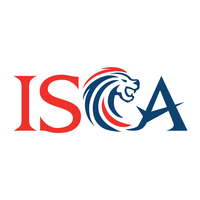Distinguished guests
Ladies and gentlemen
Welcome to the ISCA Professional Accountants in Business Virtual Conference – “Gearing up to Reboot in a New World”.
Today’s conference is held in the format of a live stream, given the need to continue with social distancing measures to minimise community spread of COVID-19. As we navigate life in the new normal, we must learn to grapple with unpredictability and adapt to new ways of working and living.
Thus, the theme of today’s conference, “Gearing up to Reboot in a New World”, encapsulates the need for the accountancy profession to be prepared for the post-pandemic world – to upskill and reskill, identify the opportunities that are inherent in this crisis and adapt to these volatile times. Along the same vein, the line-up of today’s conference is geared towards supporting accountants in navigating the challenges arising from the COVID-19 global pandemic.
We are privileged to have Mr Stuart Chaplin, Deputy Chair of the International Federation of Accountants Professional Accountants in Business Advisory Group, who will share how businesses can tackle the challenges arising from the pandemic and emerge from the crisis stronger.
His presentation, “Navigating a New World: Post COVID-19 Recovery”, will also consider the implications of the pandemic on accountancy and finance professionals as they support their employers to navigate the post COVID-19 recovery.
Today, we will also unveil the findings from a study which we have collaborated with the Lee Kuan Yew Centre for Innovative Cities at the Singapore University of Technology and Design, and Ernst & Young Advisory Pte. Ltd.. Titled “Redefining the Finance Function with Job Redesign”, the report serves as a guide for companies as they re-calibrate job roles in the finance function while undergoing business transformation to adapt to the changing business environment. Besides a presentation on the study findings, we have also lined up a panel discussion that will cover the challenges and opportunities that can come from transforming the finance function through job redesign.
There will also be presentations by experts on the new Code of Ethics, risk management in times of uncertainty, financial reporting implications arising from COVID-19 as well as the COVID-19 Technical FAQs published by ISCA to help the profession address auditing and accounting issues arising from the pandemic.
It is a well-known adage that accountants must never stop learning. This is especially so in today’s times, where the pace of change is exponentially faster. Hence, I urge our participants to make use of this time to update your skills and plan for recovery.
Recognising the importance of upskilling and reskilling, ISCA has worked with SkillsFuture Singapore (SSG), Workforce Singapore (WSG) and the Singapore Accountancy Commission (SAC) as well as other partners in the accountancy ecosystem to refresh the Skills Framework for Accountancy. The refreshed Framework now features ten career tracks, including Enterprise Risk Management, Financial Forensics, Mergers & Acquisitions and Insolvency & Restructuring. Individuals and employers can refer to the Framework to find out more about the job roles, progression pathways and existing and emerging skills which are in demand.
ISCA will continue to support the professional development needs of accountancy professionals by introducing new programmes and courses that are aligned to the Skills Framework.
One of such programmes is the ISCA Compliance Certificate series, targeted at finance and accountancy professionals who are involved with or are taking on compliance related processes. The first certificate we are launching is the PDPA Compliance Certificate, which is tailored for finance and accountancy professionals as well as other non-finance professionals who are undertaking Data Protection roles in their organisation. The courses are modular and have been developed based on the job roles and competencies for individuals who are tasked with DPO or data protection officer responsibilities under the national Skills Framework.
As part of the ISCA Compliance Certificate Series, we will also be introducing a Digital Risk Management certification course, which is aligned with technical skills and competencies within the Skills Framework, such as Cybersecurity and Risk Management. The course is targeted at finance and non-finance professionals who are interested to move into or partake in digital risk management work in their organisation. It is expected to be launched in early 2021.
We are also developing a course on Data Storytelling and Visualisation for Accountants, which enables course participants to understand and apply data visualisation techniques to effectively deliver insights and data findings. The course is meant for professionals who are in financial planning and analysis roles, such as business analysts and data analysts, auditors as well as accountants preparing management reports. Data analytics has been identified in the SkillsFuture Framework for Accountancy as one of the key skills that are in demand. We thus developed this course to bridge the skills gap in the accountancy sector and enable accountancy professionals to upskill themselves.
These new courses are designed to broaden the skill sets of accountancy professionals in areas that are in demand. I encourage accountancy professionals to use this time to develop your skills, so that you can emerge stronger from the crisis.
Similarly, I hope that today’s conference will leave you feeling more equipped to take on the challenges ahead and provide insights on the direction you should take, to leverage the opportunities in the current situation and carve a new path for the future. As the national accountancy body, ISCA will continue to support the profession through the changes ahead.
Have a fruitful session ahead.

/infocomm/istock-1065240778-c.jpg?sfvrsn=50a9b558_2)
/audit-assurance/istock-1133945516-c.jpg?sfvrsn=d158128a_2)
/courses/istock-1222725146-c1.jpg?sfvrsn=339e8e96_2)
/leadership-personal-development/istock-1049824998-c.jpg?sfvrsn=3865afcc_12)

.jpg?sfvrsn=d4038e84_0)

/courses/istock-1140691163-c.jpg?sfvrsn=24ccc519_2)
/audit-assurance/istock-1169206203-c.jpg?sfvrsn=1d6f9b25_2)

/business-management-global-connection/istock-1167579720-c.jpg?sfvrsn=ff93f9a5_2)

/professionals/istock-845530100-c.jpg?sfvrsn=46efdedd_2)





/legal-secretarial/istock-866706340-c.jpg?sfvrsn=d7f57b8c_2)